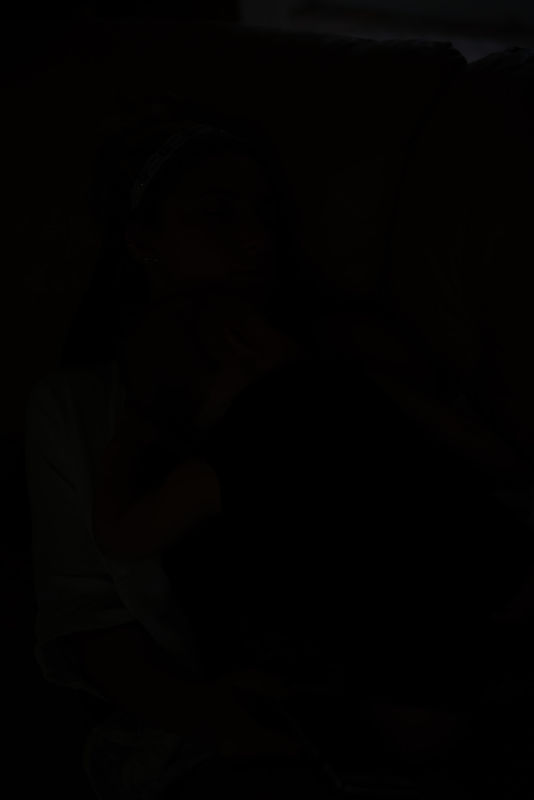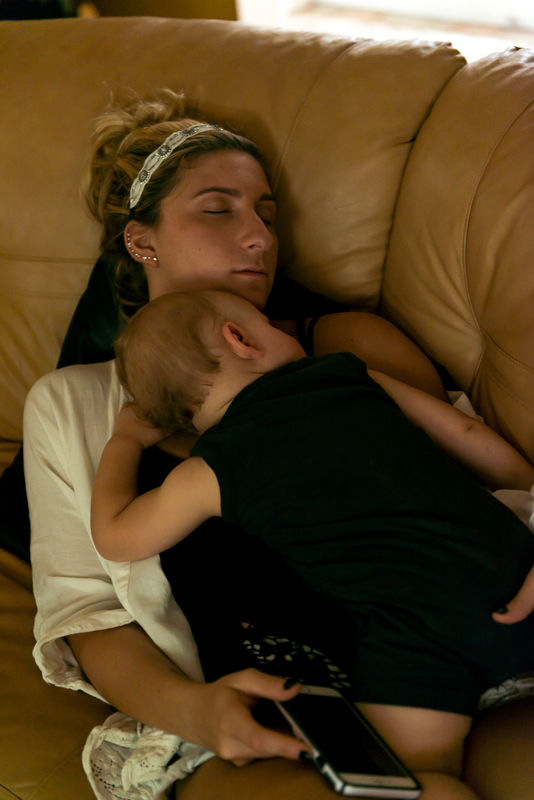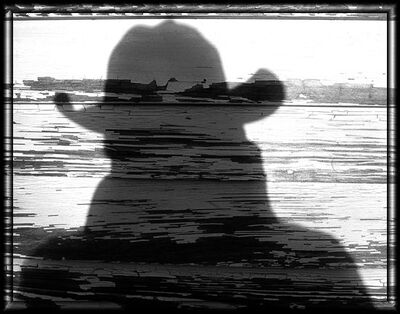Advantages of RAW pics over JPEGS?
Aug 30, 2016 07:36:14 #
DwsPV wrote:
All points mentioned by others are extremely valid... (show quote)
Always keep extra batteries.
Aug 30, 2016 07:55:03 #
JPEG reduce file size to transfer pictures through the Internet. Gradation is compressed for economy of file size. Best to shoot in RAW then convert in Photoshop to what ever file conversion you want. In compressing files the density range gets compressed from whites to blacks. It also compresses range in colors. Meaning less detail. The Internet exchanges are never noticed. So if your shooting just for the Internet shoot JPEG it also gets more file capacity in your camera. If your shooting for photographic prints shoot raw.
Aug 30, 2016 08:02:19 #
WessoJPEG wrote:
Always keep extra batteries.
I do, but there was no time to replace. One thing I hate about the SB910 (and other units I've had/worked with) - none give you a visible battery level indicator
Aug 30, 2016 08:27:52 #
husky2 wrote:
I am a new hedgehog member and I've determined tha... (show quote)
Wow. You just opened the (other) "Ford vs. Chevy" argument of photography. Religious zealots on either side will preach about their choices.
Raw sensor data includes everything the sensor captured, less whatever is lost in analog-to-digital conversion. If you save a JPEG in the camera, the camera is processing the raw file for you. It uses all the menu settings you set (OR chose to ignore!). If you really understand exposure, and take the time to set everything precisely for the conditions at hand, you can get really nice, professional quality processing from the camera. If not, you're probably better off saving raw files and post-processing them in Lightroom CC or Photoshop CC or Nikon's latest software.
There are times when a raw workflow is best. There are times when a JPEG workflow is most appropriate, or even required. I spent many years in an industry (school portraiture) where we used nothing but JPEG capture, for too many reasons to list here. But I wouldn't record JPEGs at a wedding or an event where the light changes rapidly and unpredictably!
Aug 30, 2016 08:38:53 #
Aug 30, 2016 08:41:38 #
Know how to adjust your camera and settings no need to shoot Raw. Ken Rockwell shoots jpeg.
Aug 30, 2016 08:43:23 #
husky2 wrote:
I am a new hedgehog member and I've determined tha... (show quote)
I sometimes shoot Raw+Jpeg. That way I get to choose which one I prefer. Why not give Raw a shot. See if you prefer it.
Aug 30, 2016 08:47:24 #
Aug 30, 2016 09:07:34 #
boberic wrote:
I sometimes shoot Raw+Jpeg. That way I get to choose which one I prefer. Why not give Raw a shot. See if you prefer it.
Good advice. I always shoot and save both. I seldom use the raw files, but sometimes when printing it comes in handy.
I also severely cull my files after every shoot and delete a lot of technically fine images if I have similar shots. I started shooting digital when the D1x came out and started saving almost everything. I soon realized that if I continued it wouldn't be long before there were more images than I could ever look at again. With that mindset I delete most files that need extensive editing. If I catch something special I'll work on it.
Of course I only shoot for fun. No pressure from a customer to deliver. If I miss a particular shot I just hope for something better tomorrow. If this is a hobby, the first goal should be to enjoy it.

--
Aug 30, 2016 09:11:27 #
If you have PS Elements, it comes with a RAW editor so you can compare editing either JPGs or RAW files. The RAW file editor is not quite as comprehensive as in LightRoom but it has the basic tools. I started with just JPGs but when I discovered RAW, I found even though I am not artistic or whatever, that I felt I had much more control over my edits. I basically do all my work in LightRoom and have no desire to move to Photoshop although I know that in PS there are infinitely more tools/strategies. As an interested amateur, LR has been sufficient and is my tool of choice. But I still use Elements to combine photos, add text, etc. I don't even shoot in JPG anymore as I can convert any pic to a JPG in LR.
Aug 30, 2016 09:14:01 #
gvarner
Loc: Central Oregon Coast
husky2 wrote:
I have done simple editing using Photoshop Elements 1 which I bought a long time ago. I have P Elements 10 which I bought a couple years ago. I have used it some but I agree, I've probably just scratched the surface for what I can do using version 10. I am going to see what I can do with the RAW files. Thanks to everyone for your suggestions.
I recently upgraded from Elements 11 to 14. You can get 14 for about $50 now since 15 will be out soon. Elements processes RAW files no problem. Some say it's too basic but I find that it has way more technology in it than I can ever use.
Aug 30, 2016 09:19:18 #
Bill_de wrote:
Wrong on a couple of counts. In most modern camera... (show quote)
Here is a good read on the differences between PSE, PSCC and LRCC:
http://www.tomsguide.com/us/adobe-photoshop-buying-guide,review-2617.html
Your view of raw is a little unusual. I find that raw is amazingly fast. The command set is limited, so there is not much you can do outside of large scale corrections on an image - the artistry is definitely created in Photoshop. What I tell my students is that raw conversion is to get really good quality proofs, and Photoshop is for the creative, fussy, critical detail work. Raw converters don't have the tools to do that kind of work. Raw converters offer crude masking, and tone/color/sharpening/some denoising/contrast/white and color balance, lens corrections, CA removal, etc - nothing really creative there. But once the file completed in a raw converter, you can "go to town" in a pixel editor, with layers, masking, layer blend modes, layer styles, a wide array of filters for refinement and special effects, curve adjustments, several color spaces, channels, customizable brush styles, gradient layers, gradient fills, selection tools compositing, and so on - anything you can think of you can do in a good, full featured pixel editor. And most of it cannot be done in raw conversion.
I used to do weddings. I would come home sometimes with 800-900 images. Three hours later, after culling, performing basic adjustments for consistency in color and tone and capture sharpening - the client would be able to view their images on line. That 3 hour timeframe included the upload. That would take me a week working on jpegs only. I used Capture One before Lightroom. Both are fast, production-oriented applications.
Most of my beginner students have no clue how to use a photo editing. I used to try to get them to get friendly with PSE and jpegs, and it was quite frustrating for everyone. I now just focus on teaching them Lightroom as an intro, because I found that they can get to something reasonable in the shortest period of time with less frustration. And when they want something more powerful for compositing, removal or moving of things in the mage, etc - the go on to Photoshop.
You can edit a jpeg. But editing the raw file instead of letting the camera do it will always produce a better looking image. And you can push an image's tone and color values deeper than you can in a jpeg, which is prone to posterization and banding, when you overdo things. I do not recommend editing in 8 bit (jpegs) - this explains it well:
http://www.photoshopessentials.com/essentials/16-bit/
Unfortunately most of PSE is 8 bit.
I generally do not recommend PSE - for all intents and purposes, PSE is a subset of PS, and you can always use PS as a basic editor without delving into the more advanced features. It's expert mode is pretty good, but not as complete as I would like to see. The thing to remember is that it is pretty easy to max out on PSE's capabilities, which is much harder to do with PS. PS is a program that you can grow into and grow with. The $10/mo (or $7.50/mo if you take advantage of the promotion at B and H), has got to be the best deal in town on an excellent editing suite.
Aug 30, 2016 09:30:16 #
DwsPV wrote:
All points mentioned by others are extremely valid... (show quote)
Some cameras are ISO invariant, meaning that you can grossly underexpose an image and still get something usable. I did the following test using a D800, and 5 stops underexposure. I used it's base ISO of 100 for this comparison. The results were pretty much the same had I used ISO 3200.
While the D800 is not exactly ISO invariant, it is close. I suspect that it could be really usable for 4 stops. The D810/D500/D7200 are all ISO invariant and look better with 5 stops underexposure than the D800.
This is absolutely not possible when working with jpegs.
original 5 stop underexposure

(Download)
Corrected for 5 stops underexposure in Lightroom

(Download)
Aug 30, 2016 09:32:10 #
This has been discussed many times in the forums. I will give you my personal opinion based on my experience using both formats.
As you have already seen in order to shoot RAW special software is needed. A RAW image is the original capture of the camera without firmware intervention. It is a very large file with lots of information but the operator has to work at it to make it its best since certain parameters like contrast and sharpness are usually absent although more modern editors add a little bit of both. The files usually have 12 or 14 bits of information, no color space so the operator has to add one. It takes time to edit RAW files.
What puzzles me is that after all the work the file has to be converted to a JPEG image to make it useful since RAW is not a universal file. The same goes with Adobe RGB and ProFoto that are not universal colors like sRGB is. When a file that started with a large number of pixels is compressed I am sure something significant has to happen to that file. The same goes with a wide color space when it is converted to sRGB which is considerably smaller. By the way, sRGB has millions of colors that neither you nor I can see so imagine wider color spaces.
Modern JPEG images are superb in quality assuming the operator knows what he or she is doing. I know excellent wedding photographers that only use JPEG files. In case you ask me I use both.
As far as I know no professional lab accepts RAW files, nor is there a publication in this world that will accept those files for publication.
These are some of the facts. Many here shoot strictly RAW and others JPEG.
As you have already seen in order to shoot RAW special software is needed. A RAW image is the original capture of the camera without firmware intervention. It is a very large file with lots of information but the operator has to work at it to make it its best since certain parameters like contrast and sharpness are usually absent although more modern editors add a little bit of both. The files usually have 12 or 14 bits of information, no color space so the operator has to add one. It takes time to edit RAW files.
What puzzles me is that after all the work the file has to be converted to a JPEG image to make it useful since RAW is not a universal file. The same goes with Adobe RGB and ProFoto that are not universal colors like sRGB is. When a file that started with a large number of pixels is compressed I am sure something significant has to happen to that file. The same goes with a wide color space when it is converted to sRGB which is considerably smaller. By the way, sRGB has millions of colors that neither you nor I can see so imagine wider color spaces.
Modern JPEG images are superb in quality assuming the operator knows what he or she is doing. I know excellent wedding photographers that only use JPEG files. In case you ask me I use both.
As far as I know no professional lab accepts RAW files, nor is there a publication in this world that will accept those files for publication.
These are some of the facts. Many here shoot strictly RAW and others JPEG.
Aug 30, 2016 09:48:25 #
JerryOSF
Loc: Bristol, VA
If you want to do the raw editing and are not afraid of trying Linux there are many editing programs available for jpgs & raw. Linux and all programs are free. I will be happy to provide more info if you are interested. Gimp will edit jpgs, is free and runs on win, macs and linux.
If you want to reply, then register here. Registration is free and your account is created instantly, so you can post right away.








